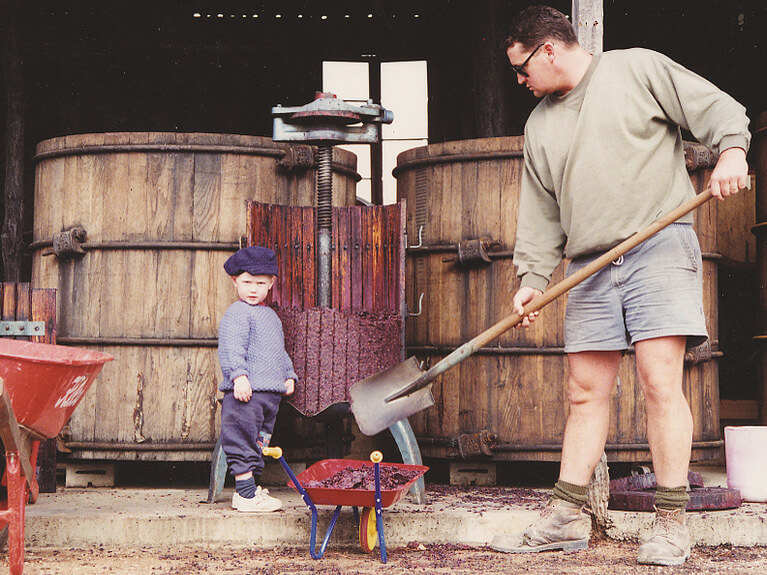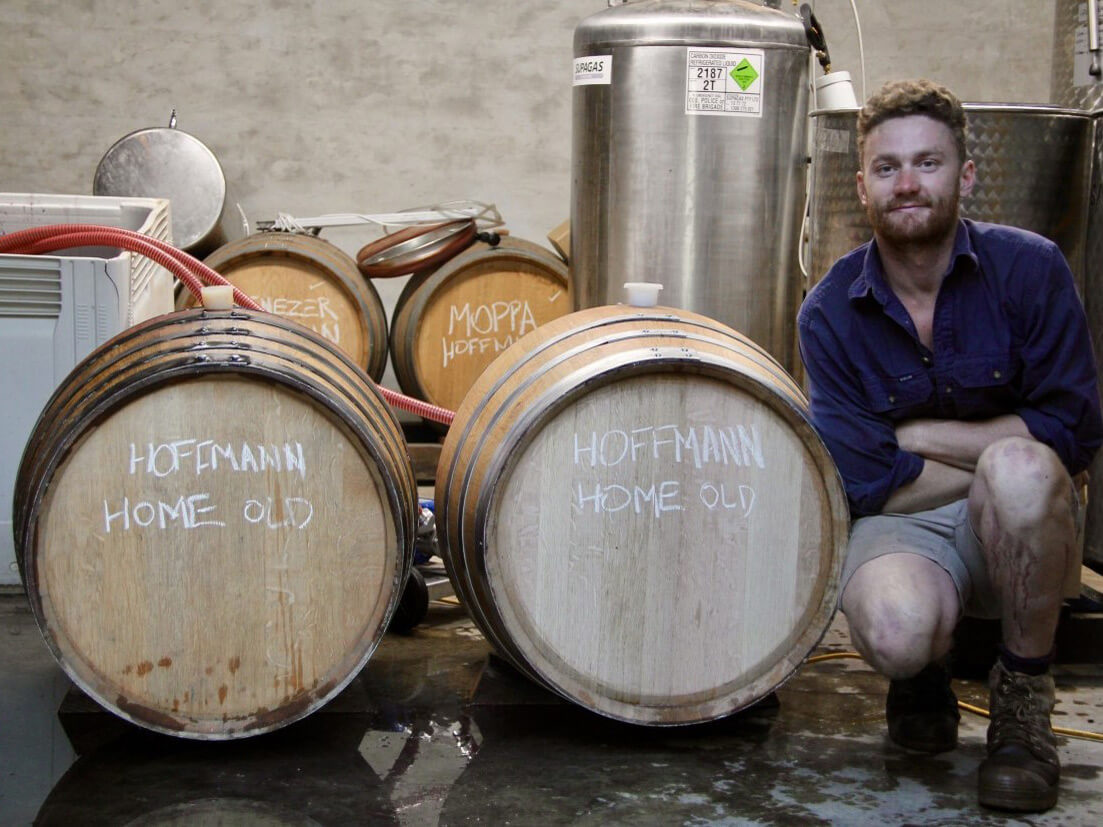From the tapestry of the Barossa’s vine-strewn landscape, Callum Powell is weaving an exciting new chapter with his Agricola label that is a homage to the pursuit of ‘a sense of site’. This journey, rooted in the soils of the famous Torbreck winery, where his formative years unfurled, has blossomed into a quest for a profound connection with the land. Powell’s odyssey took him from the nurturing embrace of the Barossa to the storied terrains of Hermitage at Domaine JL Chave, enriching his palette of winemaking hues. His wax sealed Barossa and Eden Valley wines, with hand illustrated vineyard maps on the back labels, deliver on the goal of perfumed, complex, naturally balanced interpretations of Barossa.
“I made wine with my dad under Powell & Son from 2014-2018 and began Agricola in 2018. I worked full time in the vineyards at Rockford while I was getting started and have been working for myself for about a year or so now,” tells Powell.
“I was totally inspired by the concept of provenance/terroir after my time in Hermitage,” Powell reflects, his words echoing a deep-rooted reverence for the land’s narrative. His academic and practical pursuits in viticulture and oenology at Adelaide, interspersed with stints at esteemed wineries, laid the groundwork for Agricola.
Agricola is Powell’s homage to the Barossa’s venerable vines, an exploration of the ‘sense of place’ that defines each vineyard. “The goal with Agricola is to explore our ‘sense of place’ by working with vineyards that have their own trademark style,” he explains, highlighting his commitment to capturing the essence of each site. “We have some really beautiful vineyard resources in the Barossa. These are some of the oldest vines on the planet and the topography and climate changes dramatically.”
On talking the leap to releasing his own wines, Powell reflects, “I had grown up around these incredible, old sites and for a long time had wondered how they look on their own, without all of the winemaking artifice. I made three barriques in the first vintage, 2018, without any additions to the wines and loved the result, seeing these vineyards for what they are.”
His methods are a testament to this philosophy, with a focus on organic and biodynamic practices, wild ferments, and a gentle touch in the cellar. “I think wines of the Barossa can be very intriguing, perfumed and complex when picked appropriately and made with transparency in mind.”
His sources from a number of vineyards. “Making wine without added acid in the Barossa, the challenge is always balancing natural acidity and reaching phenological ripeness. Working with the right sites that ripen later in the season helps (North Barossa and Eden Valley), as well as shoot thinning, reducing crop load, working with whole bunch to tame the powerful fruit with more delicate aromatics and tannin.”
But Powell grows his own vines too. “Aside from our old vines (~100 years old), we have planted a young vineyard at a density of 5,200 vines/ha on our steep, granitic hillside. The plan is to encourage the vines to push their roots deep to find water and nutrients in the rocky subsoils. This vineyard is a massale of the old vine shiraz material around Flaxman Valley. There are a handful of 100+ year old shiraz vineyards in our area, all of which produce exceptional cool climate shiraz and so we wanted to do our best to hold onto this vine material and keep it for another generation in Flaxman Valley.”
Powell’s hands-on approach extends beyond the vineyard to the very labels of Agricola, where his creative flair and respect for heritage converge. “I design the labels, and the artwork comes from local history, a nod to our rich tapestry,” he shares, underscoring the personal imprint that defines every aspect of his wines.
In this communal tapestry of the Barossa, where viticulturists and winemakers weave their tales, Powell finds inspiration and camaraderie. “There’s a shared pride here, in what we grow and what we create,” he muses, acknowledging the collective spirit that fuels his journey.




